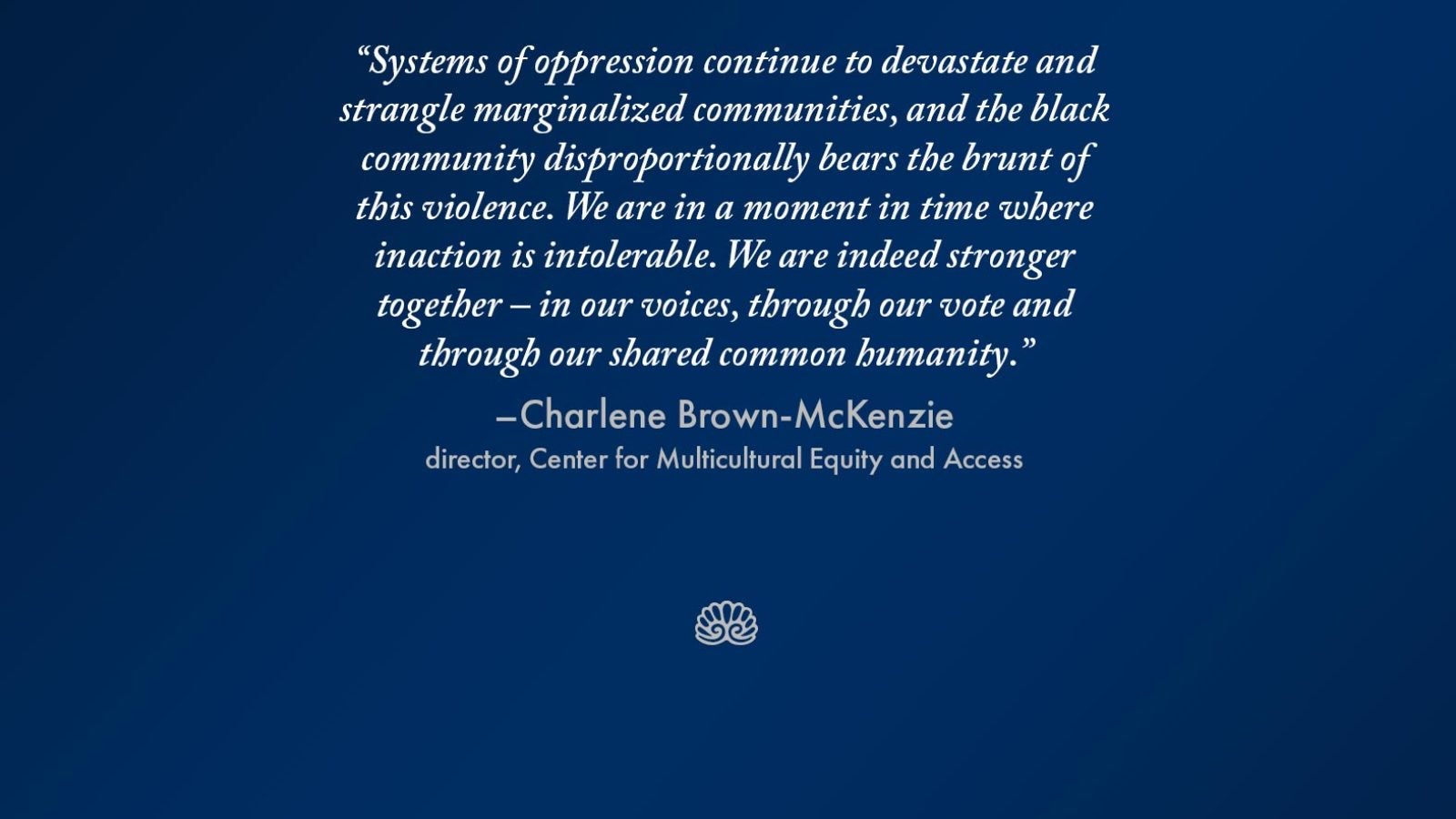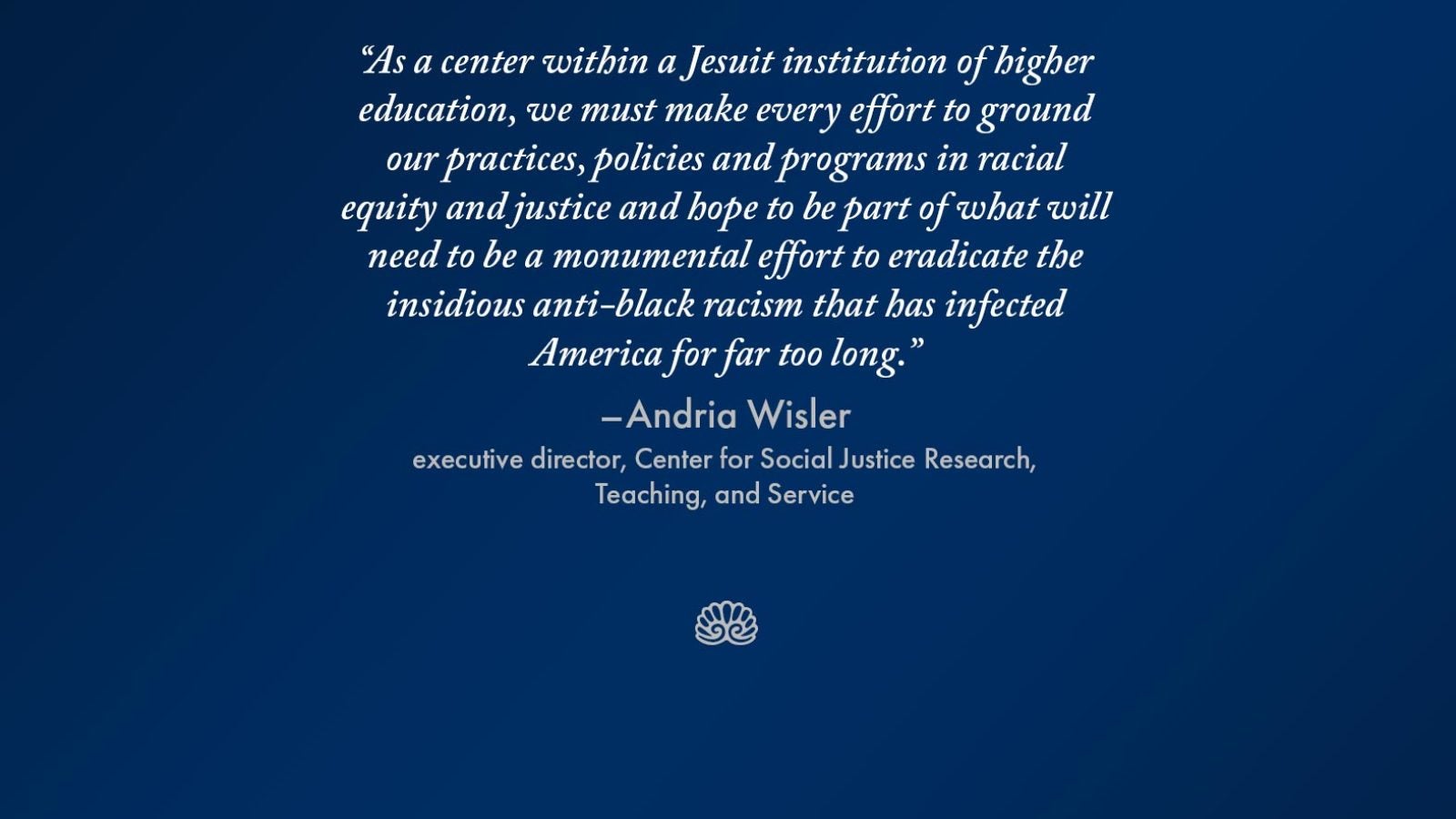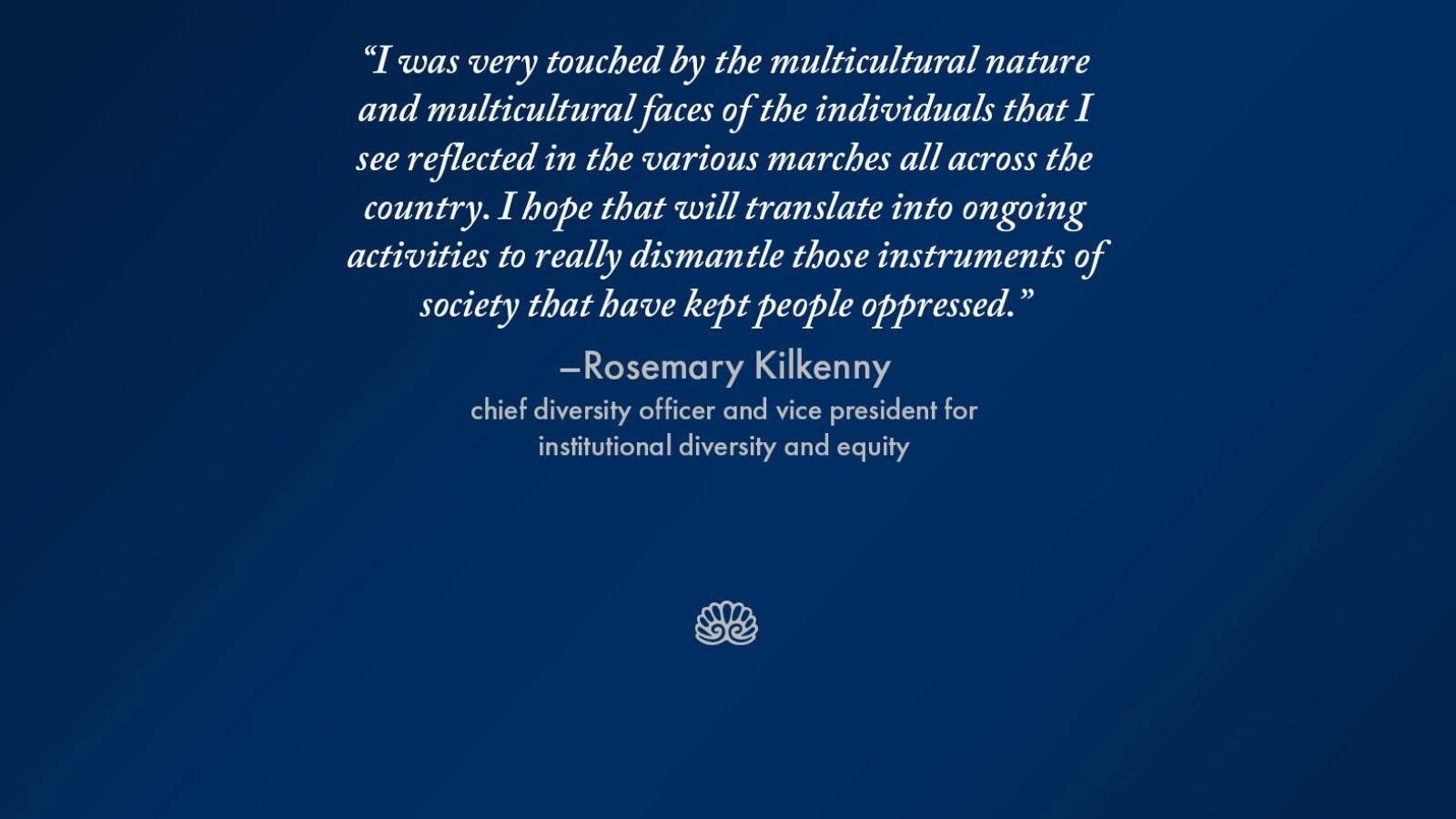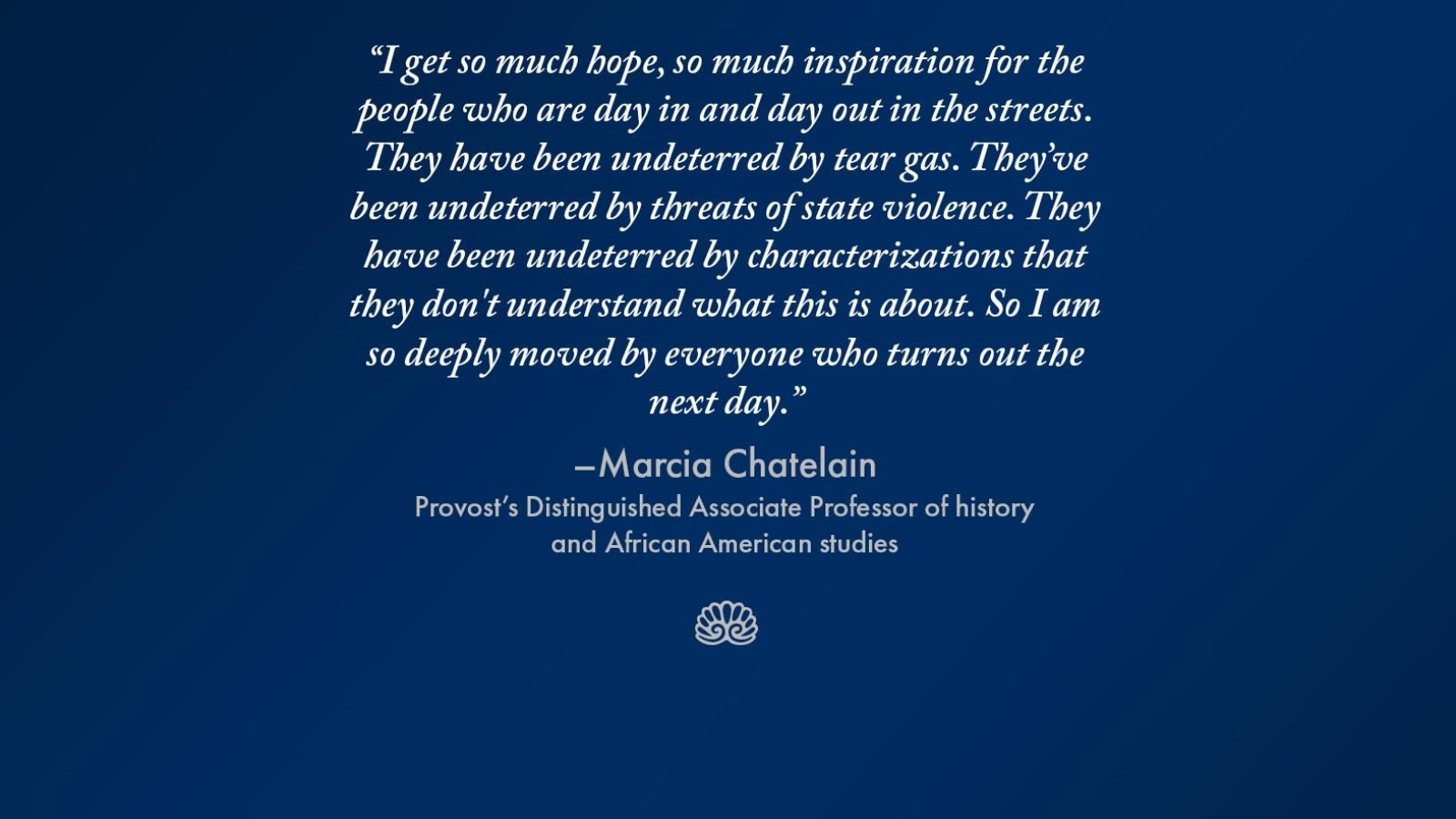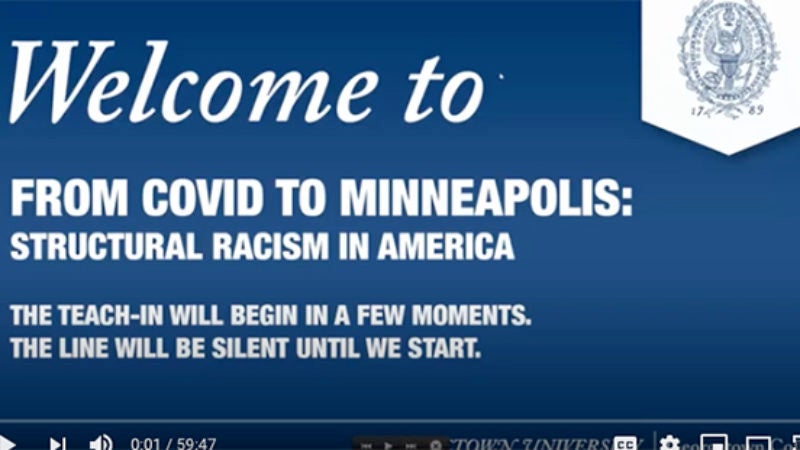Provost’s Distinguished Associate Professor of history and African American studies Marcia Chatelain, Ralph McCloud, director of the U.S. Conference of Catholic Bishops’ anti-poverty program and Gloria Purvis, host of the EWTN radio show “Morning Glory,” comprised the rest of the panel.
100 Years of Lessons
Chatelain expressed concern that incidents of police brutality, as well as inequities in other sectors for Black people, may continue unless there is radical, systemic change.

“My last book was about the past 50 years of state failure in Black communities,” said the author of Franchise: The Golden Arches in Black America ( Liveright, 2019). “And if you go back a hundred years and you look at the right conditions of 1919, what are Black people saying? Police brutality, not enough jobs, poor schools for our kids, lack of health care, terrorism by our white brothers.”
“And so if we’ve had a hundred years to learn this lesson, I don’t know what will make this moment different.”
Psychic Hold
President John J. DeGioia wrote in a May 31 message to the Georgetown community that the deaths of Black Americans at the hands of police “once again present our country – and each one of us – with the imperative to confront the enduring legacy of slavery and segregation in America.”
“Our role in society – to pursue the truth – through the methodologies and disciplines through which we establish knowledge in our world, demands our engagement,” he wrote. “… We also know that the very ideas of race and subsequently of racism are social constructs, the product of early American scholarship, developed and nurtured in order to justify the institution of slavery.”
Two prominent experts on the legacy of slavery – African American studies and performing arts professor Soyica Colbert (C’01) and Robert Patterson (C’02), professor of African American studies – have engaged in more than one of Georgetown’s recent conversations.
Their book, The Psychic Hold of Slavery: Legacies in American Expressive Culture (Rutgers University Press, 2016) is as relevant as it was when they began to think about it in 2014, they said.

“We were struck by the coincidence of having the first Black president and also having [an increase] of killings, including the death of Trayvon Martin and many others …,” Colbert recalled during a June 4 virtual presentation with Patterson to Georgetown alumni.
“The conversation we were trying to stage, which was really about how our current moment was related to the history and legacies of slavery, I think has even more resonance, obviously … in regard to the past nine days and certainly the past three-and-a-half years,” said Colbert, who is also vice dean of faculty and the Idol Family Professor in Georgetown College.
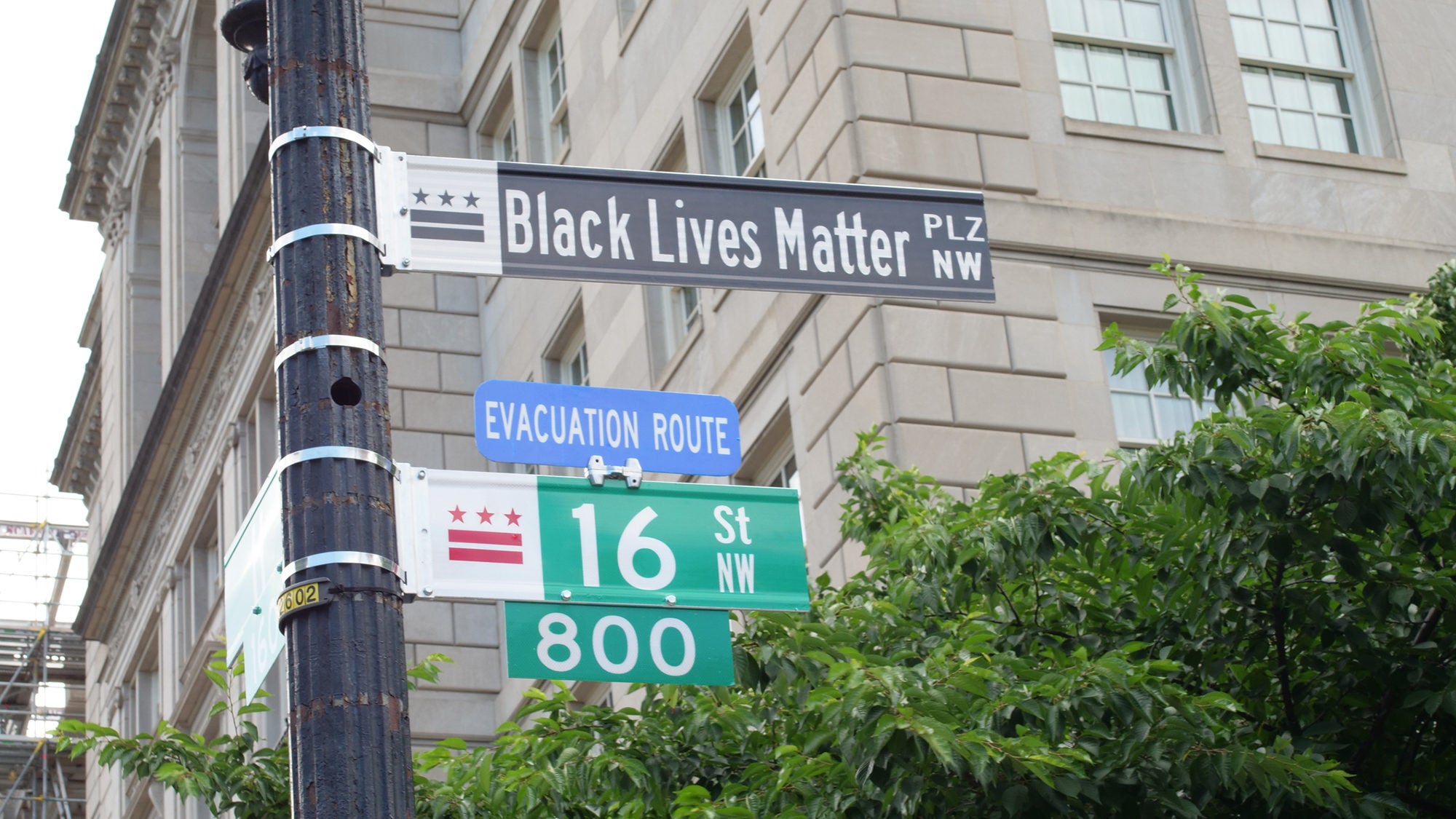


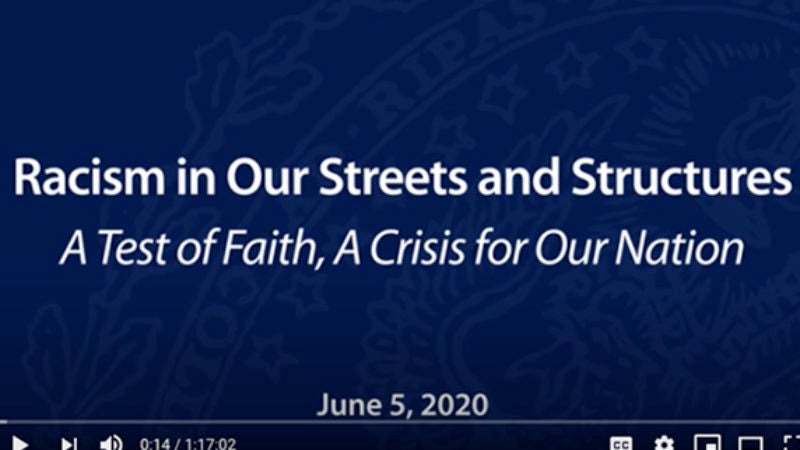
![Slide with the words "There is some thinking that with the stroke of the pen and signing of legislation [Civil Rights Acts of the 1960s] the cumulative effects of that discrimination is eradicated and a level playing field is just created through the law. The laws were changed, but did not undo the feelings of anti-black racism as they were implemented in one-on-one interactions and institutions."](https://www.georgetown.edu/wp-content/uploads/2020/06/RPatterson3-1600x900-c-default.jpg)
